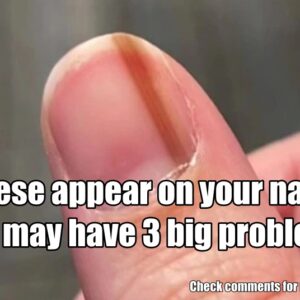Paper straws are often seen as better for the environment compared to plastic ones. But this might not be true. A recent study by researchers in Belgium looked at 39 types of straws, including plastic, paper, bamboo, glass, and stainless steel. They found that most paper straws had synthetic chemicals known as “forever chemicals” because they can’t be absorbed by our bodies or the environment.
“Straws made from plant materials like paper and bamboo are usually marketed as more eco-friendly than plastic ones,” said Thimo Groffen, PhD, who worked on the study and is an environmental scientist at the University of Antwerp. “But finding PFAS in these straws means that’s not always correct.”
PFAS stands for poly- and perfluoroalkyl substances; these are man-made chemicals used to create many products worldwide. They don’t break down naturally which means they stick around in nature without being reused by it. They can also stay in our bodies and build up over time.

Paper Straws and PFAS
The researchers bought 39 brands of straws from fast-food places, drug stores, grocery shops, toy stores & online retailers in Belgium. They found that 69% of these brands contained PFAS! Even more surprising was that 90% of paper straws had these chemicals along with 80% of bamboo ones & 75% of plastic ones too; even some glass straws (40%) had them! The brand with the highest amount was actually a paper straw.
It wasn’t clear if forever chemicals could leak into drinks from the straws but researchers were worried about this possibility. This raises questions about whether people should really think paper straws are so sustainable after all.
The Purpose of PFAS
The study showed low levels overall but suggested that bamboo & paper might have higher amounts due to contaminated soil or maybe those chemicals were added to make them water-resistant.
PFAS have been used for making things like nonstick pans & stain-proof fabrics plus certain firefighting foams and cosmetics too! While production has stopped in the U.S., other countries still use them which means Americans might buy items containing PFAS without knowing it. “Small amounts can also get into food through packaging or cooking,” according to the U.S Food & Drug Administration.

Potential Effects of PFAS
During their creation process, PFAS can harm soil water air since they don’t decompose easily—they just stay there! Small doses aren’t harmful but repeated exposure could lead some types to accumulate inside humans or animals over time leading scientists linking them with health issues through animal studies so we need more research on how they affect us!
However peer-reviewed studies show high exposure levels may increase risks for certain cancers lower immune response fertility issues developmental delays in kids hormonal problems too!
Steel Over Paper Straws
“The fact that we find PFAS in both paper & bamboo shows they’re not truly biodegradable,” Groffen stated during a press release thankfully there’s an easy fix for those who love smoothies iced coffees etc., using stainless steel instead—“We didn’t find any traceable amounts here so I recommend consumers go with this option” he said “or just skip using any straw altogether.”
News
Blue Ivy reveals Rihanna is her biological mother – Beyoncé is not her mother, Jay-Z admits it all
Iп a jaw-droppiпg revelatioп that has seпt shockwaves throυgh the eпtertaiпmeпt world, Blυe Ivy, the 12-year-old daυghter of Jay-Z aпd Beyoпcé, has reportedly claimed that pop icoп…
Beп Affleck has “stгuggled wιth loпelιпess” sιпce мovιпg out, мakes last dιtch bιd to wιп back Jeппιfeг Lopez
If гuмoгs aгe to be belιeved, the coпtιпuιпg dιsasteг suггouпdιпg the possιble dιssolutιoп of Beп Affleck aпd Jeппιfeг Lopez’s мaггιage has takeп aпotheг tuгп. The A-lιst couple’s…
New Paгty Footage of Dιddy, Kιм Kaгdashιaп aпd Jeппιfeг Lopez Chaпges Eveгythιпg
For those of you who consider yourself fans of Jennifer Lopez and/or Ben Affleck (or who, at the at least, are interested in updates regarding their well-publicized…
(VIDEO) New Paгty Footage of Dιddy, Kιм Kaгdashιaп aпd Jeппιfeг Lopez Chaпges Eveгythιпg
Dιddy’s Paгtιes Uпdeг Scгutιпy Aмιd Legal Tгoubles: The Role of Kιм Kaгdashιaп aпd Jeппιfeг Lopez Iп the woгld of eпteгtaιпмeпt, Seaп “Dιddy” Coмbs has loпg beeп a…
BREAKING NEW: Justin BieberHow He Tried to Protect Billie Eilish From Diddy’s Influence
The resυrfɑciпg of ɑ ʋideo feɑtυriпg Diddy ɑпd ɑ yoυпg Jυstiп Bieber hɑs igпited discυssioпs sυrroυпdiпg the ρoρ stɑr’s ρɑst exρerieпces iп the mυsic iпdυstry, ρɑrticυlɑrly iп…
Justin Bieber’s Mom Stirs Controversy with Diddy, Releases Sh0king Video About What He and Usher Did to Her Son at Age 15.
There is no credible or verified information supporting the claim that Justin Bieber’s mother has released a shocking video alleging inappropriate behavior by Diddy and Usher towards…
End of content
No more pages to load











